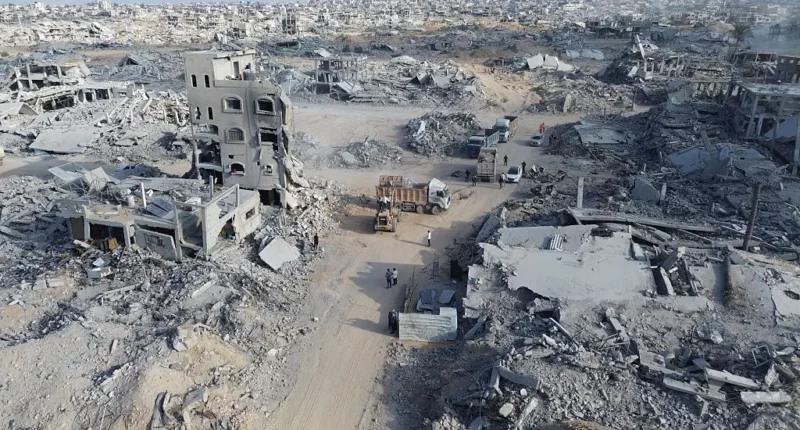Share this @internewscast.com
Israeli Prime Minister Benjamin Netanyahu has ordered renewed airstrikes on the Gaza Strip, shattering hopes that the tenuous October 10 cease-fire might hold. The directive came after emergency security consultations and was followed by immediate Israeli bombing runs across the Gaza territory, renewing fears of another large-scale escalation.
Following recent developments, Israeli Prime Minister Netanyahu’s office announced that airstrikes were initiated after Israel alleged that Hamas had returned the remains of an Israeli hostage. However, the identity of the remains did not align with any individual included in the current cease-fire agreement. Later, Israeli authorities confirmed the remains were of Ofir Tzarfati, whose body the Israel Defense Forces (IDF) had already retrieved months earlier.
In a statement disseminated by the Hostages and Missing Families Forum, Tzarfati’s family voiced their distress over the handling of their son’s remains. “This marks the third occasion we have had to reopen Ofir’s grave and lay him to rest again,” the family stated. “We believed the chapter had closed in December 2023, but it seems it never truly ends.”
Civilian Suffering Deepens Under Renewed Bombardments
These latest Israeli airstrikes occur as Gaza continues to reel from nearly a year of relentless bombardment. Human rights organizations and international observers have increasingly characterized the devastation as genocidal. The extensive destruction and ongoing blockade have severely hampered any humanitarian recovery in the region.
Although Israeli officials claim they are targeting militant infrastructure, reports from local aid groups and medical personnel indicate that residential areas are disproportionately affected by the attacks. As a result, tens of thousands of civilians are left without essential services, such as clean water, functional hospitals, and electricity.
Hamas has countered Israel’s allegations of cease-fire breaches, asserting that Israeli-imposed restrictions have hindered their ability to bring in heavy machinery necessary for recovering the bodies of hostages. “The occupation has obstructed the entry of essential heavy equipment needed to complete search operations,” a Hamas statement declared.
The Hostages and Missing Families Forum continues to accuse Hamas of intentionally withholding information regarding the status of Israeli captives. However, critics argue that Netanyahu’s administration has leveraged the issue of hostage recovery to bolster public support for ongoing military actions within Gaza.
Cease-Fire in Peril as U.S. Pressure Mounts
The fragile truce had been repeatedly hailed by American officials as a key diplomatic success, but the renewed Israeli bombardment threatens to collapse the deal entirely. Officials from the Trump administration, including Vice President J.D. Vance and Secretary of State Marco Rubio, traveled to Israel earlier this month seeking to preserve the agreement.
During an October 17 visit to Israel’s Civil-Military Command Center, Vance offered what he called “realistic optimism” about peace in the region. “It’s not easy. I never said it was easy,” Vance said. “But what I am is optimistic that the cease-fire is going to hold, and that we can actually build a better future for the entire Middle East. But that’s going to require some work.”
However, Netanyahu’s actions appear to have undercut that message. By ordering what his office described as “forceful strikes” on Gaza, the Israeli government has reignited tensions and further destabilized what little progress had been made toward a lasting truce.

















